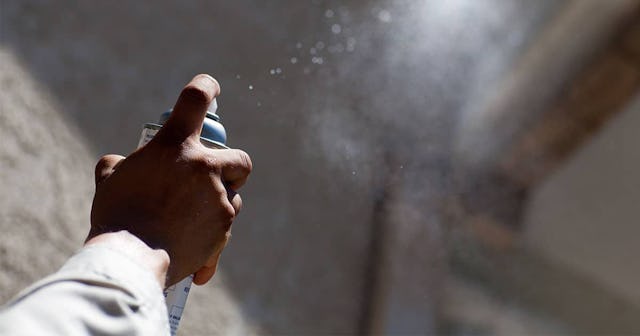We Shouldn’t Kill Spiders Anymore So I’m Moving To Another Planet

I’m just going to come out and say it. I am a father of three, with a college education and a mortgage, and I’m a terrified of spiders. TERRIFIED.
I’m optimistic that this is a safe place, because it’s not something I bring up in casual conversation. I mean, don’t get me wrong: I don’t squeal at the sight of spiders. I just don’t particularly care to look at them, or think about them, or know that they are in my home. Just me writing the word “spider” right this moment is me giving a little bit of anxiety.
The truly depressing part of all of this is that I seem to have been thrust into the position of spider slayer. At least once a month, I come home to a random cup upside down in my house, a book on top of it, and I know exactly what happened. My wife found a spider, she trapped it, and now she is expecting me to kill it. And yes, like a dutiful husband, I do exactly that. I bury my fears, and squish that little eight-legged sucker with a tissue. I end up looking like a hero, and our family can rest a little better knowing they won’t get bitten in the night.
Except a recent Time Magazine article by North Carolina State University entomologist Matt Bertone is now making me wonder if rather than squashing that little bugger, I should be releasing it outside myself. Or better yet (takes deep breath) allowing it to live in my home.
I know, I know, some of you might be wondering how I could be cruel enough to kill spiders in the first place — though the arachnophobes out there took the same deep breath I did at the idea of allowing spiders to live unchecked in our houses. But I must admit, Bertone does make some good arguments.
For example, spiders are more afraid of humans than we are afraid of them. And while that is obviously true — after all, I am humongous in comparison — I do know that desperate and fearful insects can do ridiculous things, like latch onto your skin and jam you full of venom.
But as it turns out, spider bites are actually quite rare. In fact, if you think a spider has bitten you, think again, because chances are it’s a skin lesion. I know, saying it was a spider bite sounds a lot more interesting than admitting to having a skin lesion, but it’s true. According to AnthropodEcology.com, only 3.8% of people seeking treatment for spider bites actually had spider bites. 85.7% had skin infections.
But hey, I’m with you. My tolerance for spider bites is actually 0%, so 3.8% is still pretty risky.
According to Bertone, however, most of the spiders found in the home aren’t actually capable of breaking your skin. They have itty-bitty fangs. The most common spiders found in the home are cobweb spiders and cellar spiders, both of which are pretty harmless to humans.
They are also pretty beneficial. Rather than attacking you, or your children in the night, they actually work overtime capturing nuisance pests and even disease-carrying insects, such as mosquitoes. And let me just say, if I hate anything more than spiders, it’s mosquitoes, so perhaps this is a “pick your poison” sort of thing. Some spiders even eat other spiders, so apparently there’s a whole circle of life going on behind the walls of my home, including cannibalism.
None of this is helping me to sleep better, but it is helping me realize that each time my wife catches a spider and says, “kill it” I might actually be doing more harm than good.
The overall argument here is to stop freaking out every time we see a spider in our home, and realize that it might actually be trying to help us. I know this sounds like a huge leap of logic, particularly for those of you who are like me and sometimes wake up in the night in a cold sweat because you dreamed you’d been caught by massive spider. You know, something similar to what happened to Bilbo in The Lord of the Rings. Only I don’t have a magic sword for protection, just a box of tissues.
There’s one thing I know for sure: if my wife catches a spider, I could talk to her all day about how wonderful they are, and how they aren’t dangerous, and we should just let it go in the kitchen so it can do it’s spider thing. But I honestly doubt she will go for it. And I don’t know how convincing I could make that argument because I don’t really want it in the house, either. But I will go for the middle ground, I think. Next time I come home and find that upside-down cup with a book on it, I’m going to take that little thing outside and let it go.
Sure, it might make its way back inside the house, but hopefully it will be a little smarter, and little better at hiding, and as long as I don’t see it, we will all get along just fine.